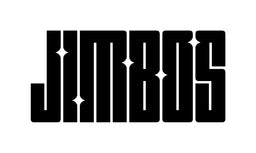How to Tell if Your Soap Has Enough Lubrication
Most swirl marks happen not because your tools are bad — but because your soap isn’t lubricated enough. Lubrication is the invisible barrier between dirt and paint that keeps scratches from forming. But how do you actually tell if your soap is doing its job? Here’s how to test, what to look for, and which soaps truly protect your finish.
What Lubrication Really Does
When you wash your car, friction between your wash mitt and paint can drag contaminants across the surface. A properly lubricated soap reduces that friction dramatically by creating a slick film that suspends dirt and allows it to glide off safely.
This “slip layer” is what keeps your paint from getting scratched. Without enough lubrication, even the softest microfiber can act like sandpaper on your clear coat.
Why Many Soaps Fail the Lubrication Test
Some cheap car soaps focus on foam and fragrance instead of slickness. They look great in a bucket — lots of suds, nice smell — but they lack the lubrication needed to prevent marring. You’ll notice your mitt feeling “grabby” or skipping across the surface rather than gliding smoothly.
That’s your first sign your soap isn’t providing enough protection. Real lubrication feels like your mitt is floating across the paint, even with light pressure.
How to Test Soap Lubrication
You can easily test your soap’s lubrication at home in two simple ways:
1. The Finger Glide Test
Rub some diluted soap between your thumb and index finger. It should feel slick, not sticky or watery. If it feels slippery like conditioner or shaving cream, it’s well-lubricated. If it feels thin or gritty, it’s not safe for paint.
2. The Mitt Glide Test
After applying soap or foam to a cool panel, move your wash mitt slowly across the surface. A good soap like The Super Soaper will make the mitt glide effortlessly with almost no resistance. If it tugs or drags, stop immediately — your soap isn’t lubricated enough.
Safe vs Unsafe Washing Habits
| Unsafe Habit | Safe Alternative |
|---|---|
| Using cheap, thin soap with low slickness | Use a high-lubricity formula like The Super Soaper for true protection. |
| Washing without a foam pre-soak | Always pre-soak to loosen dirt before contact washing. |
| Dragging a dry mitt over panels | Keep your mitt saturated and well-lubricated during washing. |
| Drying with low-quality towels | Dry with a plush, high-GSM towel like the Massive Drying Towel. |
How Lubrication Protects Paint
Lubrication doesn’t just make washing feel smoother — it prevents microscopic scratches that dull your paint over time. When dirt particles get trapped between your mitt and paint, lubrication cushions those particles and allows them to slide off instead of cutting in.
Think of it like shaving — the foam doesn’t clean your skin; it lubricates the blade to prevent damage. The same principle applies when washing your car.
Why Foam Density Matters
Dense foam helps keep lubrication on the surface longer. A well-balanced soap like The Super Soaper produces thick, clingy foam that stays wet and slick for several minutes. If your soap creates watery foam that runs off immediately, your lubrication window is too short — increasing the chance of swirls.
The foam isn’t just for looks — it’s a protective layer that buys you time and keeps your mitt gliding safely.
Wash Safer with The Super Soaper
Engineered for extreme slickness and foam stability, The Super Soaper provides the lubrication your paint needs for scratch-free washing.
Buy on Jimbo’s Detailing Buy on AmazonHow to Improve Soap Lubrication
- Use warm water: It helps activate surfactants for better slickness.
- Foam generously: Don’t be afraid to over-foam — more coverage equals more lubrication.
- Add soap booster: For heavily contaminated cars, add 1 oz of Pure Magic Cleaner to your foam cannon to increase cleaning power.
- Keep panels wet: Lubrication only works when surfaces stay hydrated.
By maintaining good lubrication from start to finish, you can safely wash even black or dark-colored cars without creating new swirls.
Related Reading
- The Role of Lubrication in Car Washing
- Why Suds Don’t Always Mean Safe Cleaning
- Pre-Soak Car Wash Method Explained
- Common Rookie Washing Mistakes to Avoid
- The Science Behind Paint Scratches from Washing
FAQs
How can I tell if my soap has enough lubrication?
If your wash mitt glides smoothly across the paint and the soap feels slick between your fingers, it has enough lubrication.
Why is lubrication more important than foam?
Foam is mostly visual. Lubrication reduces friction and prevents micro-scratches that cause swirl marks.
Can I increase lubrication in my wash?
Yes. Use more concentrated soap, apply thicker foam, or upgrade to a premium product like The Super Soaper for better slickness and safety.



